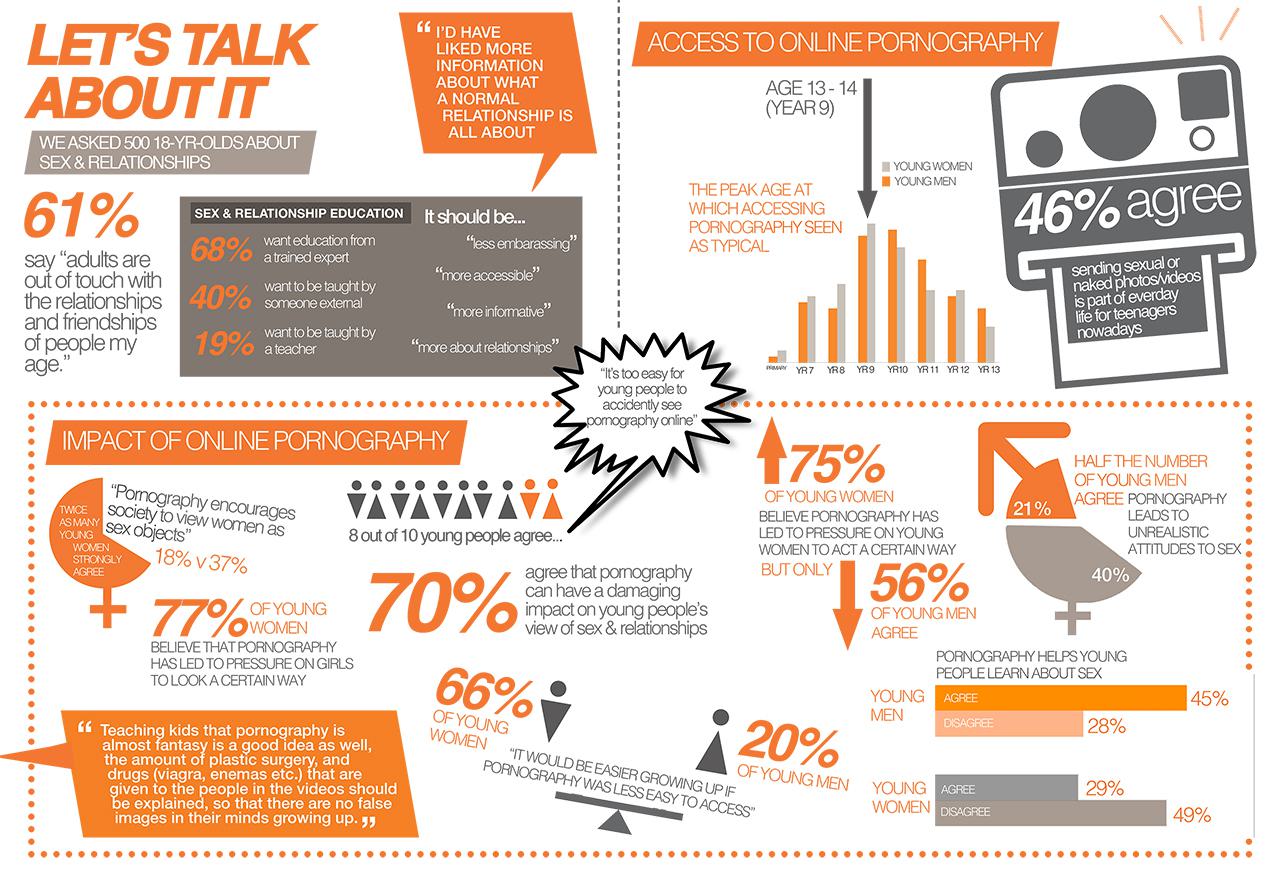Young people, sex and relationships: The new norms
How do our young people feel about sex education, pornography and relationships in the age of mobile technology?Article
There is rising concern about the sexual activities and relationships of young people. These concerns are not new, but the rapid expansion of technological possibilities has changed the nature of the debate. Young people are revealing ever more information about themselves, and traditional 'offline' occurrences such as bullying, relationship break-ups and social pressures are magnified and recorded online. Relationships can be more intensive, with more opportunities for contact and less visibility or moderation by adults, and relationships and friendships often create permanent digital content. Access to adult or extreme material is fundamentally different and much easier. And quality information, clear social norms, and opportunities for redress are less present in digital spaces than usually exists offline.
These changes have left a widening gap between those who have a responsibility to educate and guide young people and the behaviours and norms created by rapidly evolving technology. Parents and teachers didn't grow up with the technologies that have become part of young people's lives, and many teachers lack the guidance and structural support to teach about these issues.
We surveyed 500 18-year-olds to gauge their attitudes to sex and relationships, and their opinion of the education and support they had received (downloadpolling data).

Enlarge this graphic in a new window / Share
Among the young people we surveyed, there was a clear majority view that sex and relationship advice and support should be taught at school and should be high quality and led by experts. This echoes wider research showing that too many young people report not feeling equipped to manage issues they face in sex and relationships. Similarly, our results reflect wider research findings showing that the prominence of pornography in shaping norms and behaviours is creating pressures for many young people.
The focus of this report is on highlighting the trends, attitudes and behaviours that are underpinning the experience young people today have of early intimate relationships and of sex and relationship education. However, there are three broad policy recommendations that stem directly from these findings:
- Sex and relationship education should be taught in every school by specialists, and must be broader in scope: Crucially, our survey showed that young people feel they need more information and support in every area of sex and relationship education.
- Parents, educators and young people need a single point to access advice and support: Although school is a vital source of information, it is not the only one, and the pool of adults who support and influence young people themselves need access to useful, contemporary resources and guidance.
- Local authorities' public sexual health responsibility for young people should be broadened: for example, to extend beyond targets for teenage pregnancy or sexually transmitted infections to cover the wider wellbeing aspects of healthy, positive intimate and social relationships.
Related items

Reclaiming Britain: The nation against ethno-nationalism
How can progressives respond to the increasing ethnonationalist narratives of the political right?
Rule of the market: How to lower UK borrowing costs
The UK is paying a premium on its borrowing costs that ‘economic fundamentals’, such as the sustainability of its public finances, cannot fully explain.
Restoring security: Understanding the effects of removing the two-child limit across the UK
The government’s decision to lift the two-child limit marks one of the most significant changes to the social security system in a decade.